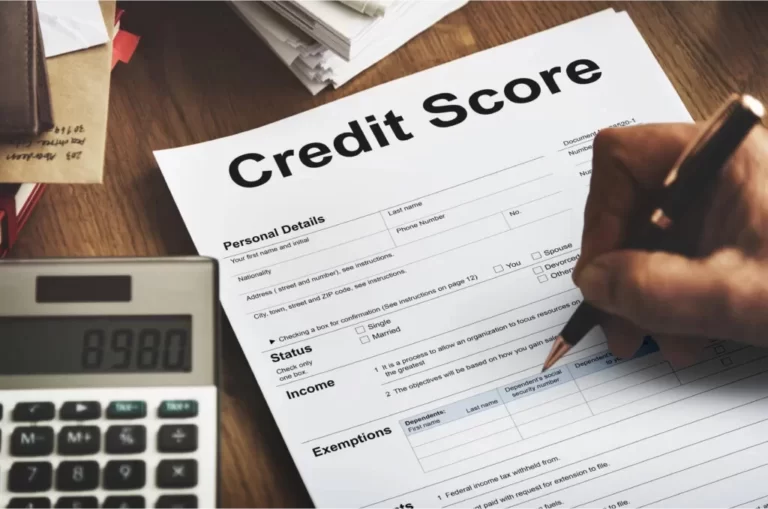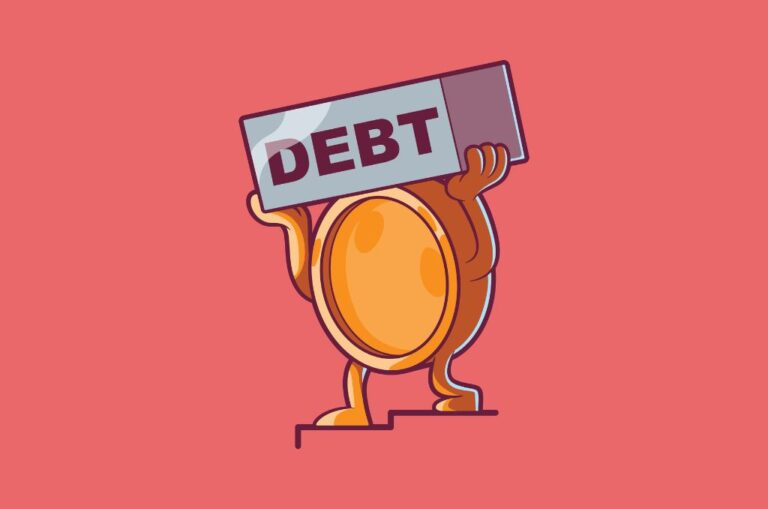Are you considering debt consolidation but worried about how it will impact your credit score?
You’re not alone!
Your credit score is a crucial aspect of your financial life, and it’s essential to understand how debt consolidation can affect it.
However, the good news is that, in many cases, consolidating your debts can help improve your credit score in the long run.
By simplifying your repayment process and potentially reducing your interest rates, you may be able to achieve greater financial stability and boost your creditworthiness.
So, if you’re curious about how debt consolidation can impact your credit score, read on!
In this blog, we’ll explore the ins and outs of debt consolidation and credit scores and give you the information you need to make an informed decision about your financial future.
What Is Debt Consolidation?
Debt consolidation combines multiple high-interest loans from several accounts into one big single loan for a better payoff term, such as lower monthly payments or interest rates.
You can use debt consolidation to cover credit card debt, student loans, or other liabilities.
Ways To Consolidate Your Debt
(1) Personal loan: Take out a loan from a bank, credit union, or online lender to pay off your debts and simplify repayment.
(2) Balance transfer credit card: Transfer high-interest credit card debts to a new card with a lower interest rate to save money on interest charges.
(3) Home equity loan: Use your home as collateral to take out a loan with a lower interest rate than unsecured loans.
(4) Retirement account loan: As a last resort, borrow from your retirement account to pay off debts, but be aware of the potential impact on your retirement savings.
(5) Debt management plan: Work with a credit counseling agency to consolidate debts and set up a repayment schedule, but be aware of any fees and potential impact on your credit score.
Pros & Cons Of Debt Consolidation
Pros:
- It allows you to pull all your monthly payments into just one.
- The interest rate you pay for the new loan is often low.
- It could also boost your credit score.
Cons:
- In the long run, debt consolidation may cost more.
- If you don’t plan your repayment well, it could result in a bad credit score.
- The payment you will make could exceed the minimum credit card payments.
Best Debt Consolidation Loans Of 2023
We have compared and surveyed lenders and financial products to help you decide on your finances.
We have fact-checked this information to guarantee accuracy.
When considering debt consolidation loans, go for loan amounts that fulfill your needs, low-interest rate, workable repayment conditions, and affordability in terms of fees.
Consider some of the best debt consolidation loans of 2023.
1. Lightstream
LightStream’s debt consolidation loan lets you choose your repayment terms and funding date.
Their monthly interest is low, allowing you to begin saving immediately after consolidating.
They do not have pre-payments, appraisals, penalties, or fees.
The Rate Beat Program ensures you are not over-paying interest.
The repayments are constant, enabling you to plan for the bill.
LightStream’s process of getting the loan is swift, meaning you can get the money you applied for the same day.
2. Payoff
Payoff offers lower interest rates than many credit cards and customized loan terms that match your financial abilities.
They offer you a single, fixed, and affordable amount you need to pay every month to help simplify your life.
You already know how much you will pay at the beginning of the month since this figure does not change.
Payoff’s debt consolidation plan can help improve your credit score by over 40+ points.
The team is fantastic and ready to listen and help you throughout the journey to complete your payments.
3. Marcus
Marcus is a branch of Goldman Sachs Bank, offering faster debt consolidation loans to citizens of the United States.
They do not charge fees and offer low-interest rates for consumers with good credit records.
If you have a credit score of 660 or higher, you are confident of quick loan approval.
They also consider such factors as debt-to-income ratio (DTI), income, and employment status.
Marcus has a support team to help you evaluate the right loan to help you out of debt.
4. Upgrade
The Upgrade enables you to apply for your loan online, presenting you with rates to choose from with no impact or obligation to your credit score.
You will be able to review multiple loans and decide which option is best suited to your debt consolidation goals.
After accepting the offer, your money is wired to your account within a day of clearing the necessary verifications to allow you to clear the consolidated debts immediately.
Their consolidated debts can also be customized to suit your goals and abilities.
Read More: How To Get Out Of Debt In the USA In 2023
Alternatives To Debt Consolidation
Though consolidated loans can reduce your interest rate, save money, and minimize payment frequency, they may hamper your credit.
Taking a loan to service other loans may not be the ideal option.
Take a look at the alternatives available for you:
(1) Refinancing – This term is similar to debt consolidation; however, it denotes acquiring a loan to pay off one old loan.
You can choose this option if your finances and credit have upgraded from the last time you borrowed.
(2) Settlement – Settlement is where the debtor agrees with the creditor to reduce the repayment amount if the money is paid in full.
Though this negatively affects your credit score, it will get the debt off your shoulder faster.
(3) Debt Relief – This encompasses both consolidation and refinancing in addition to some level of debt forgiveness.
(4) Restructuring – Restructuring applies more to companies and is used in severe situations. It entails reorganizing the current debt instead of substituting it with a new one.
Debt Consolidation Loan And The Credit Score
Debt consolidation can enhance your credit score by lowering credit utilization since having limited credit on your credit card improves your score.
It also provides a positive report on your repayment history.
The loan improves your creditworthiness by keeping up with the outlined repayment plan.
Consolidating Credit Card Debt While Improving Credit Score
Making wrong debt consolidation decisions can significantly cost you money and hurt your credit score. Below are some tips for making sound debt decisions.
1. Maintain The Paid Account
Some close the credit card accounts after they pay them off through consolidation, and this could hurt factors that determine a credit score, such as credit mix (the various debts you have), age of your credit history (showing how long you have had credit), and utilization (the more cards you have active the credit available).
2. Be Diligent With the Payments
The debt consolidation loan is still a loan with repayment terms that you should honor.
Therefore, before taking up a new loan to repay the old one, budget to see if you will make monthly payments.
If you keep up with your monthly payment, your credit score improves.
3. Compare Various Consolidation Options Available
Before settling for a specific debt consolidation plan, research the consolidation that fits you based on budget, creditworthiness, and existing debt. The online market is a good place to get relevant information, helping you compare personal loans. Factors for comparison worth considering include monthly payments, interest rates, repayment terms, and fees.
How Does Debt Consolidation Affect Your Credit Score?
Debt consolidation can be an excellent way to get out of debt, save money, and improve your credit score.
With proper planning and careful research, you can partner with the right people to help you through your credit card debts.
As you consolidate your multiple debts into one big debt for better terms, keep your payment up to better your credit score on your way to financial freedom.
Conclusion
While you may be concerned about how debt consolidation can impact your credit score, it’s essential to understand that the effect can vary and depend on several factors.
By making timely payments and avoiding accumulating more debt, you can use debt consolidation to your advantage and potentially improve your credit score over time.
Remember, debt consolidation is just part of a broader financial strategy that should include responsible spending, saving, and investing.
With careful planning and a commitment to responsible financial management, you can use debt consolidation to overcome your debt burdens and achieve your long-term financial goals.
FAQs
The impact of debt consolidation on credit score can vary and depend on several factors, such as credit history and repayment management. It may cause a slight dip in credit scores in the short term, but responsible management can lead to an improvement over time.
Debt consolidation loans can potentially improve credit scores by reducing debt utilization and establishing a positive payment history through timely repayments.
Debt consolidation can remain on a credit record for up to seven years, depending on the type of consolidation used. Its impact on credit scores may diminish over time with responsible financial management.








